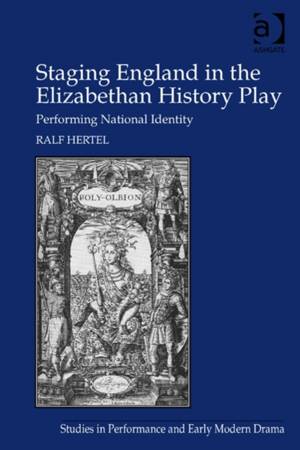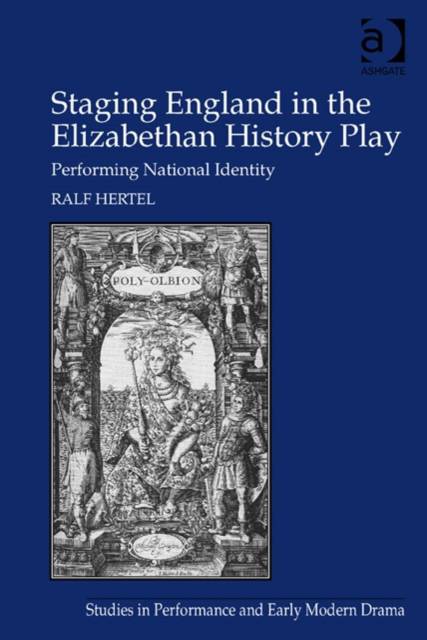
- Retrait gratuit dans votre magasin Club
- 7.000.000 titres dans notre catalogue
- Payer en toute sécurité
- Toujours un magasin près de chez vous
- Retrait gratuit dans votre magasin Club
- 7.000.0000 titres dans notre catalogue
- Payer en toute sécurité
- Toujours un magasin près de chez vous
290,45 €
+ 580 points
Description
Applying current political theory on nationhood as well as methods established by recent performance studies, this study sheds new light on the role the public theatre played in the rise of English national identity around 1600. It situates selected history plays by Shakespeare and Marlowe in the context of non-fictional texts (such as historiographies, chorographies, political treatises, or dictionary entries) and cultural artefacts (such as maps or portraits), and thus highlights the circulation, and mutation, of national thought in late sixteenth-century culture. At the same time, it goes beyond a New Historicist approach by foregrounding the performative surplus of the theatre event that is so essential for the shaping of collective identity. How, this study crucially asks, does the performative art of theatre contribute to the dynamics of the formation of national identity? Although theories about the nature of nationalism vary, a majority of theorists agree that notions of a shared territory and history, as well as questions of religion, class and gender play crucial roles in the shaping of national identity. These factors inform the structure of this book, and each is examined individually. In contrast to existing publications, this inquiry does not take for granted a pre-existing national identity that simply manifested itself in the literary works of the period; nor does it proceed from preconceived notions of the playwrights' political views. Instead, it understands the early modern stage as an essentially contested space in which conflicting political positions are played off against each other, and it inquires into how the imaginative work of negotiating these stances eventually contributed to a rising national self-awareness in the spectators.
Spécifications
Parties prenantes
- Auteur(s) :
- Editeur:
Contenu
- Nombre de pages :
- 288
- Langue:
- Anglais
- Collection :
Caractéristiques
- EAN:
- 9781472420497
- Date de parution :
- 17-04-14
- Format:
- Livre relié
- Format numérique:
- Genaaid
- Dimensions :
- 156 mm x 234 mm
- Poids :
- 580 g

Les avis
Nous publions uniquement les avis qui respectent les conditions requises. Consultez nos conditions pour les avis.






